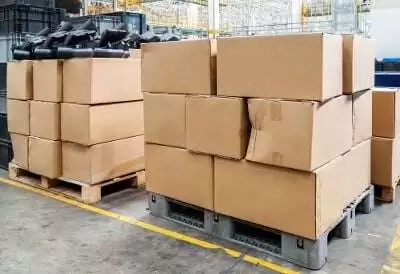Food packaging is essential to the food industry. It helps to preserve food, keep it fresh, and prevent it from becoming contaminated. In the US, the Food and Drug Administration (FDA) is in charge of regulating food packages. The FDA has established guidelines for what types of materials manufacturers can use in food packaging. These materials must be tested thoroughly for safety before they can go out into the market. These guidelines, however, only apply to some countries. Different countries have different organizations and rules for packaging.
Types of Food Packaging
Choosing suitable packaging materials is paramount to your product, with the type of container you select depending directly on the product you commercialize. The following are different packaging types you can commonly use to package your products:
- Cans: They are a common type of food packaging used to store soups, sauces, and other liquids. They are typically made of metal and have a sealable lid. They are durable and can go into storage for long periods. However, cans can be expensive to produce and difficult to recycle.
- Jars: Jars are another type of food packaging. They are typically made of glass or plastic and have screw-on lids. Jars are airtight and can be reused multiple times. However, they are breakable and can be difficult to open.
- Bottles: They are made of glass or plastic and have a screw-on lid as well. Bottles are airtight and have the same reusability advantages as jars. However, they are easily breakable and may leak if not sealed properly.
- Boxes: Cardboard is their most common material. They can protect almost all manner of products. They are also very easy to transport. Cardboard, however, is not the best for weatherproofing as water and other liquids can easily damage it.
- Bags: Frequently made of plastic. They are thin, lightweight, flexible, adaptable, and very cost-effective. As for the drawbacks, they are not waterproof and very damaging to the environment since they can take years to decompose.
- Wrappers: They are highly effective in guarding products against environmental damage. It can also prolong the shelf life of products that would otherwise spoil quickly. Since they often need perforation, their moisture-proof performance tends to be poor.
Types of Tests Performed on Food Packaging Materials
Food packaging materials can go through many different types of tests. These evaluate the safety of the materials and how well they protect food from contamination.
One of the most important ones is the shelf life test. This check determines how long a food product can go into storage before it begins to decay. Tests for leaks are another test performed on packaging materials. A leaky package can allow contaminants into the food product, which could make people sick.
Another important test for food packaging is the barrier test. This check measures the ability of the packaging material to keep oxygen and other gases from entering the package and contaminating food. A seal integrity tester will help determine if packaging materials are durable: https://www.seal-check.pro/food-packaging-seal-integrity
Benefits of Testing Food Packaging
- It helps ensure food products are not within reach of contaminants that could deteriorate their quality, guaranteeing they are safe for human consumption.
- It boosts the quality of your products, ensuring they are of the highest possible quality order.
- It increases the shelf life of your products, improving their storage capabilities.
- It extends the time the food product can withstand transportation and storage conditions.
Conclusion
Packaging is one of the most crucial aspects of the food industry. It determines whether the product will get to the consumer safely and in good condition for consumption. Imagine buying a product, and once you try to use it, you discover that it is already open or has some holes. It will obviously discourage you from using it ever again. Therefore, the packaging of products is a serious matter for the safety of the consumer, the product, and the seller’s success.




